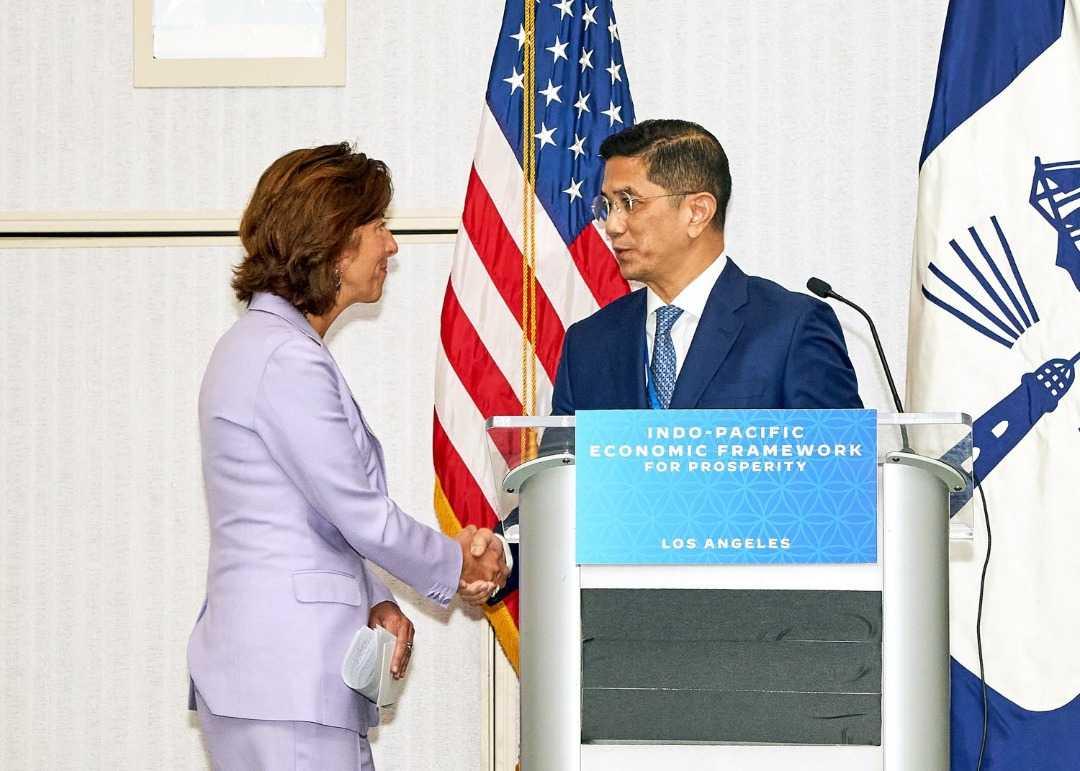Malaysia hails US-led IPEF as good platform to end export bans
Minister Mohamed Azmin Ali also says the IPEF, of which Malaysia is one of 14 founding members, could play a role in helping to forge close ties between developed and developing countries.
Malaysia has welcomed the 14-member Indo-Pacific Economic Framework for Prosperity (IPEF) as a platform to open up engagement with the US in seeking a solution to trade hindrances, including the withold release orders (WROs) that have been slapped by US authorities on Malaysian exports.
International Trade and Industry Minister Mohamed Azmin Ali said the IPEF had offered Malaysia a meaningful platform to engage with the US on the issue.
He said he had raised the matter with US Commerce Secretary Gina Raimondo during his visit to Washington in May.
"This exchange of information where we need Washington to appreciate what we have done back home to ensure the compliance of these labour compliances. We didn't have this channel of communication in the past. Now IPEF can facilitate that," Azmin, who is currently attending the first high-level ministerial engagements on IPEF in Los Angeles, told US trade journal Inside US Trade.
US authorities currently have six active WROs on Malaysian government-linked companies due to allegations of forced labour.
The WROs prohibit the import of products originating from forced labour.
Azmin said the IPEF, of which Malaysia is one of 14 founding members, could play a role in helping to forge close ties between developed and developing countries.
He said these include the more advanced economies helping developing countries in fulfilling some of the IPEF commitments.
"We need the big economies like the US... to work closely with emerging economies.
"We are committed to complying with international practices, but at the same time they need to give us some space for us to transition," said Azmin.
Washington has described the IPEF, launched by President Joe Biden in May, as the most significant economic engagement the US has ever had with the Asia-Pacific region.
IPEF in its current form is based on the four pillars of fair and resilient trade; supply chain resilience; infrastructure, clean energy, and decarbonisation; and tax and anti-corruption.
Observers have said that the initiative is to balance China's power in the wake of the formation of the Regional Comprehensive Economic Partnership (RCEP) spearheaded by Beijing, but the inclusion of India in IPEF has far outweighed the RCEP in terms of market size and GDP.
Azmin also touched on US expectations of seeing results from the IPEF initiative in the coming year.
He said such expectations might be too ambitious, and suggested that countries could start negotiations on the digital economy.
"The pandemic has accelerated digitilisation and e-commerce, and we want to see more investment in the digital economy to create jobs and growth in the region.
"We would like to see if we can achieve these goals much earlier than the targeted date, but it needs a lot of work and focus by our officials and leaders," Azmin said.
Subscribe to our newsletter
To be updated with all the latest news and analyses daily.
